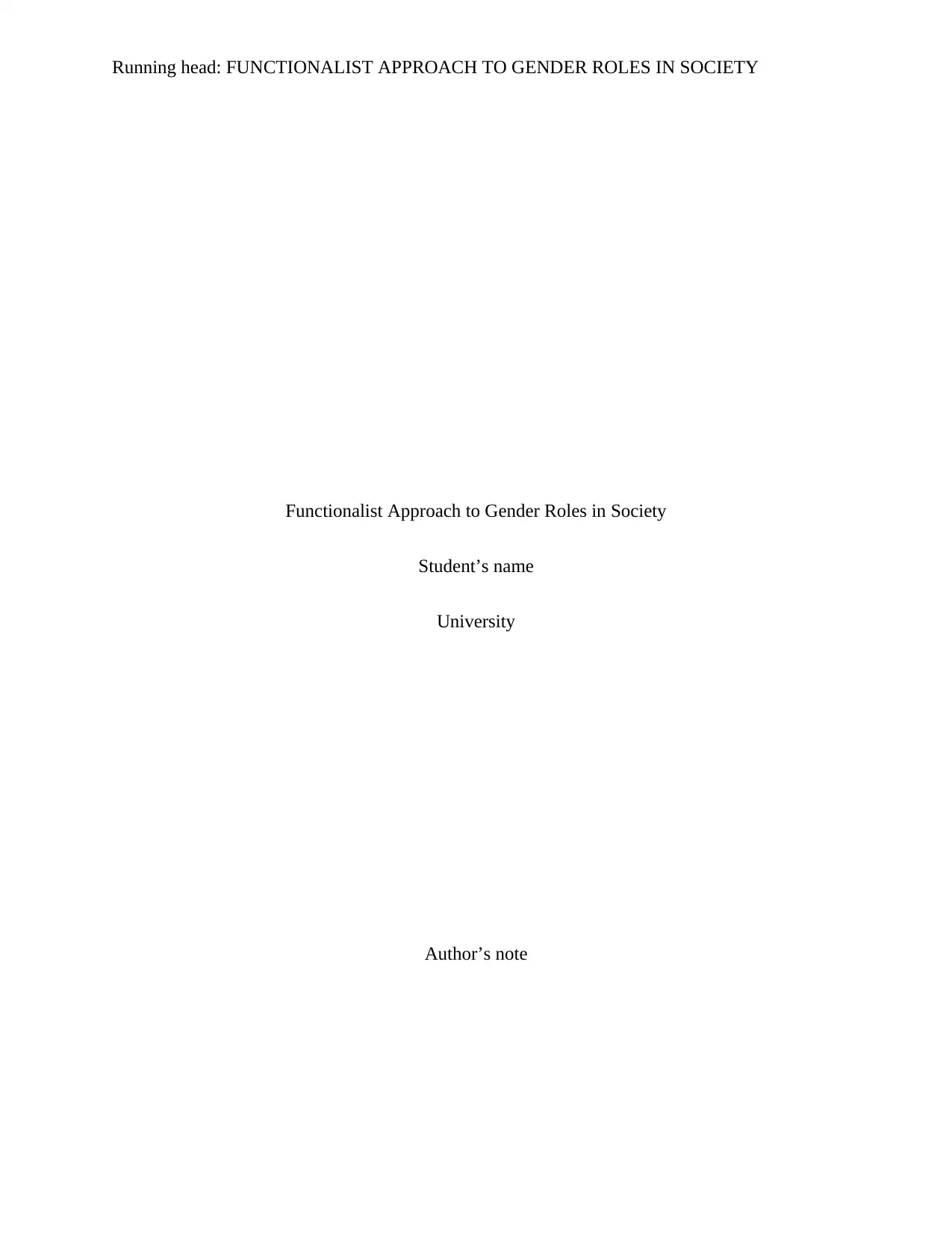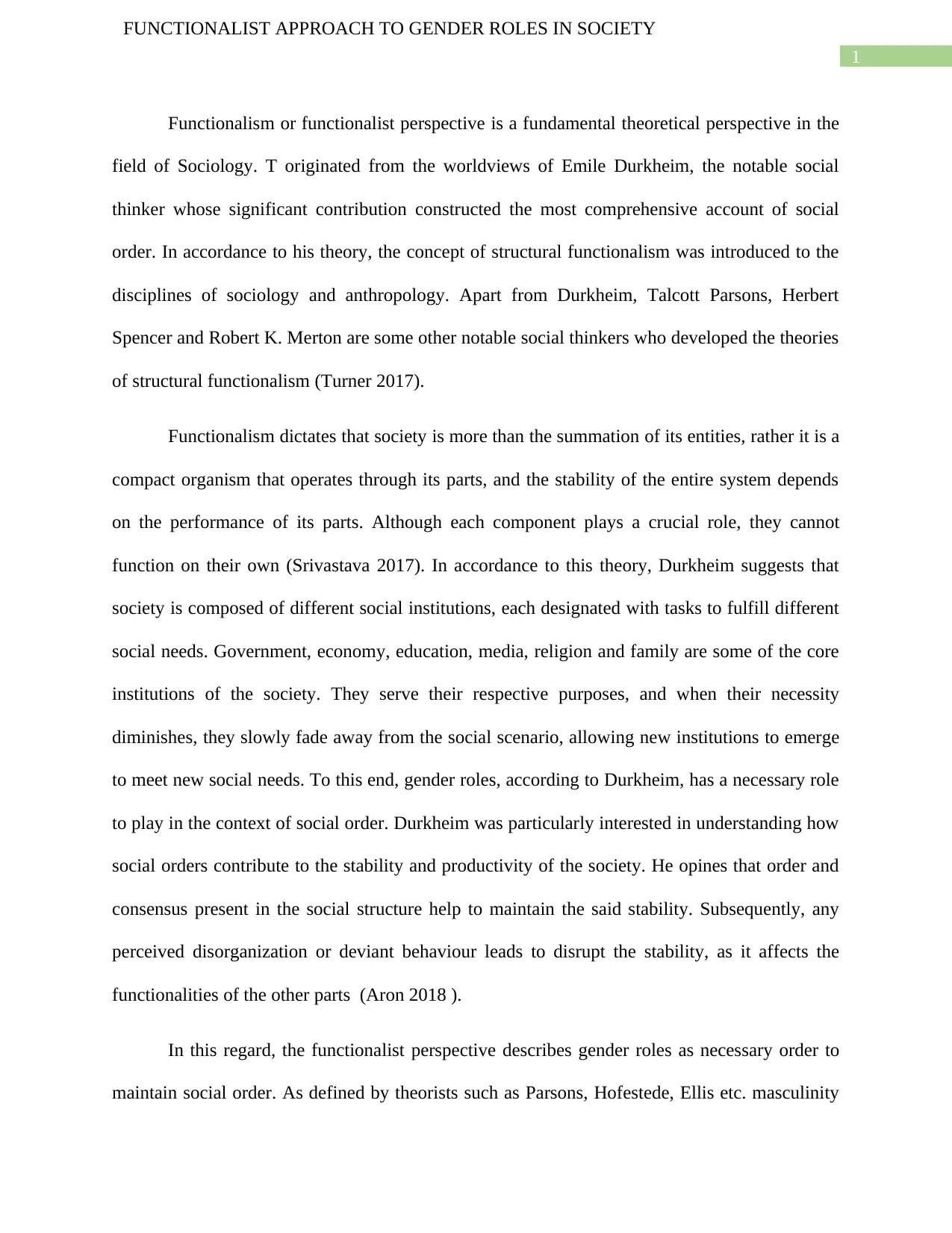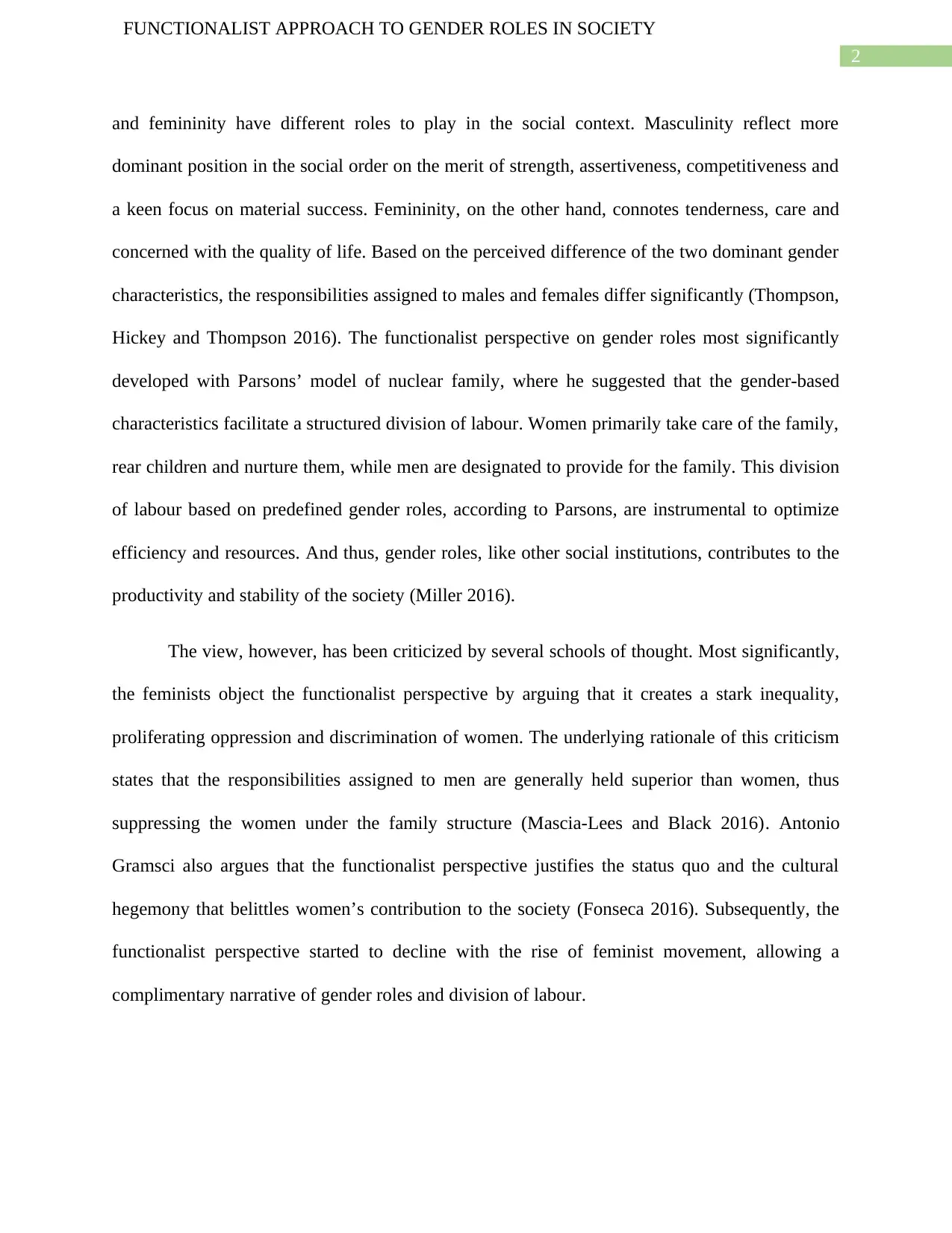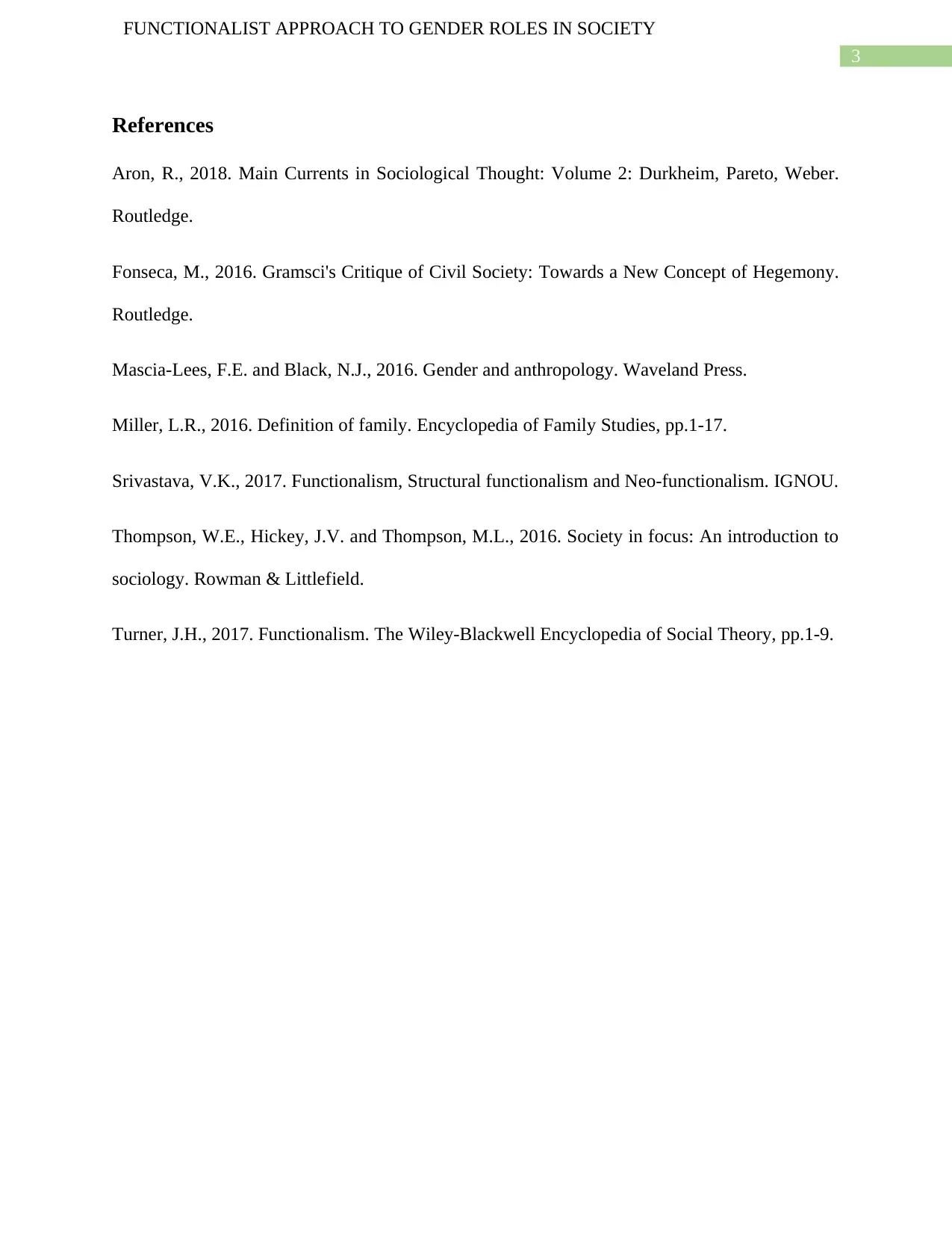University Essay: Functionalist Approach to Gender Roles in Society
VerifiedAdded on 2022/08/08
|4
|856
|49
Essay
AI Summary
This essay delves into the functionalist approach to gender roles within society, originating from the sociological perspectives of Emile Durkheim and further developed by thinkers like Talcott Parsons. It explains how functionalism views society as a cohesive organism where each institution, including gender roles, contributes to overall stability and productivity. The essay outlines the functionalist perspective on gender roles, emphasizing the division of labor based on perceived differences between masculinity and femininity, as exemplified in Parsons' model of the nuclear family. It also discusses criticisms from feminist perspectives, which argue that the functionalist approach perpetuates inequality and oppression. The essay highlights the decline of the functionalist perspective with the rise of the feminist movement and the emergence of alternative narratives on gender roles and labor division. It concludes by referencing key sociological theorists and their contributions to the understanding of gender roles in society.
1 out of 4











![[object Object]](/_next/static/media/star-bottom.7253800d.svg)